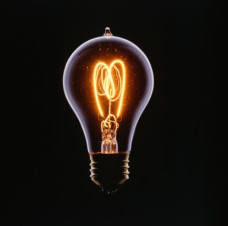RI Has Among the Highest Electricity Prices in the Country, That’s Before a 47% Increase
Monday, September 19, 2022
Coming to your mailbox this winter are electricity bills from RI Energy that will be among the highest in the United States.
Before the filing by RI Energy for the massive rate increase, Rhode Islanders already had the 7th highest residential electricity rates in the United States, according to data released by Choose Energy and updated on September 1, 2022.
Rhode Island only trails Hawaii, California, Connecticut, Massachusetts, Maine, and Alaska for having the highest electricity charges.
GET THE LATEST BREAKING NEWS HERE -- SIGN UP FOR GOLOCAL FREE DAILY EBLASTAccording to Choose Energy, RI’s per kilowatt hour is $23.63 and is now facing a 47% increase.
The U.S. consumer-price index for electricity in August climbed 15.8% over the same month a year ago, according to the Wall Street Journal. This is the biggest 12-month increase since 1981, according to a report from the U.S. Bureau of Labor Statistics.
Governor Dan McKee on Friday presented testimony before the Rhode Island Public Utilities Commission (PUC0 public hearing urging a number of actions — actions proposed that will assist lower-income residents.
McKee urged the PUC, “Distribute $32.5 million in electric ratepayer bill credits from the State's settlement with PPL back to all ratepayers over the time when electric rates will be elevated. Second: Suspend the customer charge on residential electric bills until next summer, when electricity prices are projected to decline significantly. And third: Moderate the impact on all ratepayers by spreading the higher rates over 12 months.”
Rhode Island Attorney General Urges PUC to Take Action, But Cannot Identify What the Impact Would Be
Rhode Island Attorney General Peter Neronha also offered testimony at the PUC hearing.
“Energy bills in Rhode Island are essentially comprised of two distinct charges: a charge for obtaining a supply of energy, and a charge for distribution, that is, delivering that energy to customers. The former is a pass-through charge to ratepayers, from which Rhode Island Energy, like National Grid before it, cannot profit. The latter charge – for energy distribution – is where Rhode Island Energy can profit. Thus, the fight for fair and reasonable energy prices for Rhode Islanders must be fought on the energy distribution side," said Neronha.
"That is why it was critical for this Office earlier this year to intervene in the sale of National Grid to Rhode Island Energy and secure not only a three-year freeze in energy distribution rates but more than $200 million in energy distribution relief for Rhode Islanders. Those successes should mitigate some of the impact of increased energy supply charges this winter. But there is still more that the PUC can and should do, including giving ratepayers the option to defer payment of some of the increased supply cost until next year and re-allocating certain existing state funds to provide some relief,” said Neronha.
But Neronha's office could not provide any numbers for the impact of his proposals -- specifically, how much his proposals would decrease the impact of the 47% increase.
RI Energy is also proposing a 15% increase in the cost of natural gas.
This is expected to be the most costly home heating cost in decades in the Northeast.
Related Articles
- Baker, Raimondo and Other New England Govs Call for Modernization of Regional Electricity System
- NEW: Governor Chafee To Announce CCRI Energy Utility Program
- RI Energy Facility Siting Board Rules Against Invenergy, Company Weighing Its Options
- DEAL DONE: National Grid Sold to PPL—to be Rebranded “RI Energy”
- Seven Ways the State Makes Your Electric Bill More Expensive
- George Wiley Center Organizes Against RI Energy’s Proposed Massive Rate Increases
- State Regulators Approve Sale of National Grid to PPL — Deal Valued at $5.3 Billion
- VIDEO: PPL Announces Bonenberger to Serve as President of Narragansett Electric
- RI PUC Approves National Grid Electric Supply Rate Increase of 11.9 Percent
- McKee Testifies Before PUC, Calls for Action to Limit Impact of RI Energy’s Proposed 47% Rate Hike
- Guest MINDSETTER™ John G. Edwards: Electric Rate Hike Result of Limited Gas Pipeline Capacity
- Freezing Temperatures Cut Electric Vehicle Range by 41%, Says AAA
- McKee Proposes Consumer Protection Legislation for 3rd-Party Electric Companies
- McKee to Propose Bill to Protect Consumers Working with Alternate Electric Suppliers




